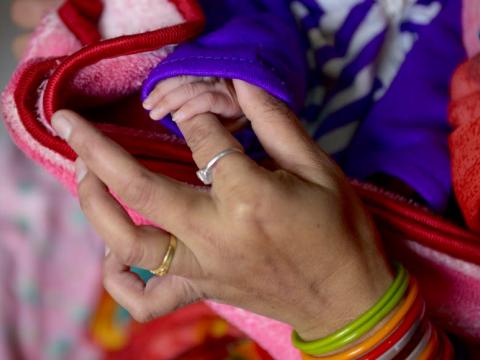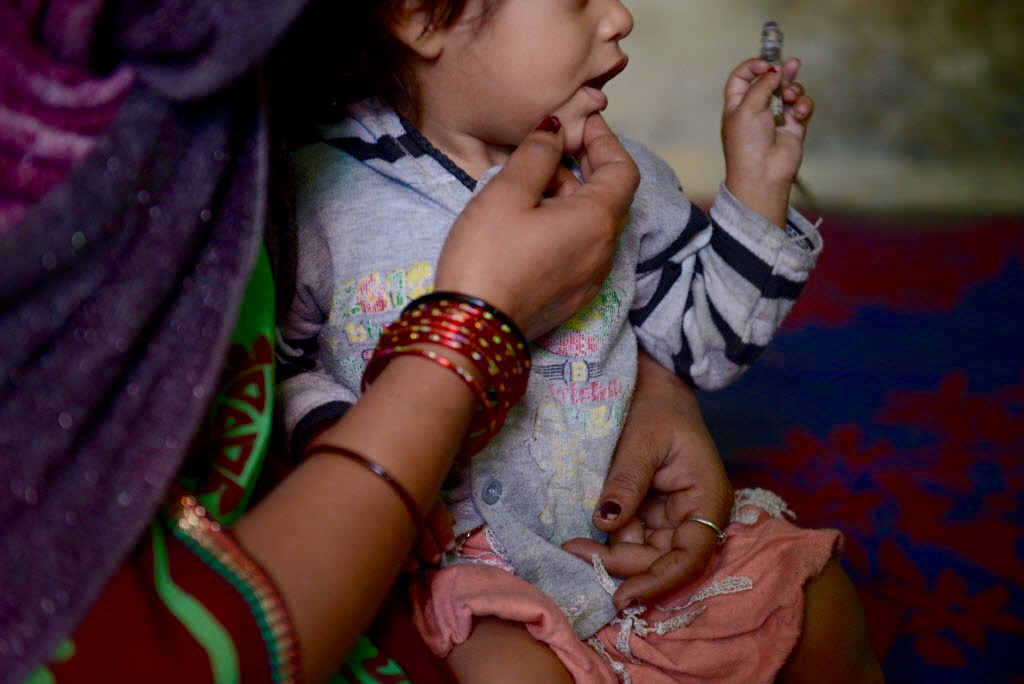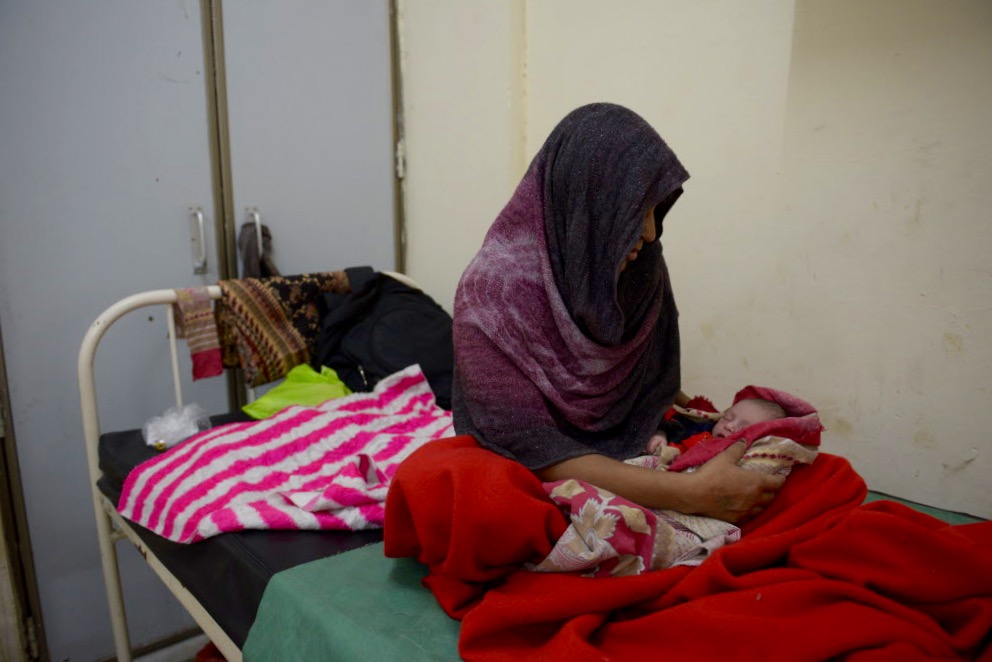India: Saved by the bell

Dangling a plastic bottle of pills in her hand from the balcony of a one-storey building, she tries to draw my attention as I navigate through the narrow path, closer towards her.
"I think I found it," says an ASHA worker (Accredited Social Health Activist). "Is this what you are looking for.”
Saddling my 9kg camera bag on my back, I climb the cramped, steep stairway leading to the balcony where the volunteer stands.
"My mother-in-law does not know I am HIV positive."
I was here working on a World Vision advocacy story about drug shortages. As I position the medicine bottle, a shadow projects itself onyo the balcony wall.
Ignoring the silhouette for a moment I focus on taking the portrait, but the sound of anklet bells clinging catches me off-guard, drawing my focus to the swollen feet wearing them.
The shadow reveals itself to be one of a fully pregnant woman standing at the rustic doorpost. Her eyes hint at exhaustion and weakness.
Greeting her I quickly start packing my gear.
"That is Urmila*. She is nine months pregnant with her third child. These medicines are prescribed to her," says the ASHA worker.
"Congratulations on your pregnancy," I say.
"Thank you. My mother-in-law wants a boy grandchild," says Urmila.
"Isn’t your first child a son?" I enquire.
"Yes but he was from my first marriage. My husband died. I remarried and so my current husband's mother desires her own grandson, since my first child with my second husband is a girl. My mother-in-law does not know I am HIV positive," says Urmila.
Pointing to the pills I ask her how long she has been on the ART medicines.
"For the past 7 years," she responds promptly.
Distracted by the cries of her 2-year-old daughter, Sonia*, she pauses to attend to her child’s need. She says, "We don’t know her HIV status though she was delivered in the same hospital as my first child."
Alarmed I ask, "But hospitals are to administer the HIV prophylactics to newborns for 6 weeks, right?"
"We don’t know her HIV status though she was delivered in the same hospital as my first child."
"Yes but for my second delivery my medical case papers weren’t with me, I thought my sister had submitted them. Later I found out she hadn’t, so my delivery was treated as a normal pregnancy and I was sent home. I thought they took care of everything. So it didn’t occur to me to double check about the medicines," says Urmila.
Due to negligence of both parties, the mother and the hospital, the newborn was deprived of the very drug that could have guarded her from HIV.
Urmila said that the doctor told her that her husband was HIV positive. "I was pregnant with my first child at that time. I too had to get tested," she says.
The results were inconclusive.
"I was asked to go for regular check-ups to monitor my CD4 count. I clearly remember I was 6 months in my pregnancy; I developed high fever and felt very dizzy. I was rushed to the hospital. That day HIV became my reality. My CD4 count had fallen drastically. Then the medicines started," says Urmila.
She was 9 months pregnant when her first husband passed away.
Learn more about World Vision's HIV and AIDS work
Having an institutionalised delivery Urmila’s first child received the medicine he needed to prevent HIV transmission from the mother to the child. Religiously taking her medications, she vowed to keep herself and her baby healthy.
"Then I met Raj. He earns a living by driving. He was kind to me. We were in love and decided to marry. Apart from my husband no one in his house and in our neighbourhood know that I am HIV positive. If people come to know they will isolate us. It will become difficult for us and the children to survive," she says.
Stroking her belly repeatedly Urmila’s face shows signs of mild uneasiness. "Just having slight pain," she murmurs.
"Let’s take you to the hospital this could be labour pains," I say in a raised voice.
"I don’t have a hospital to go and deliver my baby," she says.
A wave of panic swept over me.
It felt like the fate of the unborn child’s HIV status rested in this moment. Needing the counsel of an expert in the field I dialed the number of the World Vision manager of a former HIV project.
Explaining her case via the phone Mr. Sweeharan chooses to speak to Urmila directly.
"He told me names of other hospitals where I could go to deliver my baby. He also said that I should be firm because no one can deny me admission," she says.
A gradual sense of stillness douses my fired up nerves. Lugging my belongings I head back, with a mixed bag of emotions.
My phone buzzes the very next day, as I step into the office.
"It’s a girl. Urmila had a safe delivery in the hospital," says Alvina, a World Vision Community Coordinator.
Those three words; music to my ears! Rushing out I head to the hospital.
Mr. Sweeharan and I eagerly wait for Urmila’s husband to take us to her ward. Cosily crouched in the corner of the room lay Urmila and her little miracle.
"Here she is," says Urmila gently lifting the blanket under which the baby lay.
"I disclosed my status to the hospital. I was careful and had my case papers with me. I am happy that my child is getting the medicine she needs to protect her. The doctor has advised me to breastfeed my baby for 6 months and then shift to bottled milk. My baby is on the life saying medicines. The doctor comes to give her the drops twice a day. The medicines will go on till 6 months," says Urmila.
The two day emotional and physically exigent roller coaster ride had come to an end.
No matter how complex or gruelling the case a timely intervention makes a world of a difference to a voiceless, newborn. We are all called to be their voice.
*Name changed to protect identity
About the author | Annila Harris, a dynamic storyteller, with a passion for highlighting social issues affecting the world today. She works for World Vision, based in New Delhi, India.

